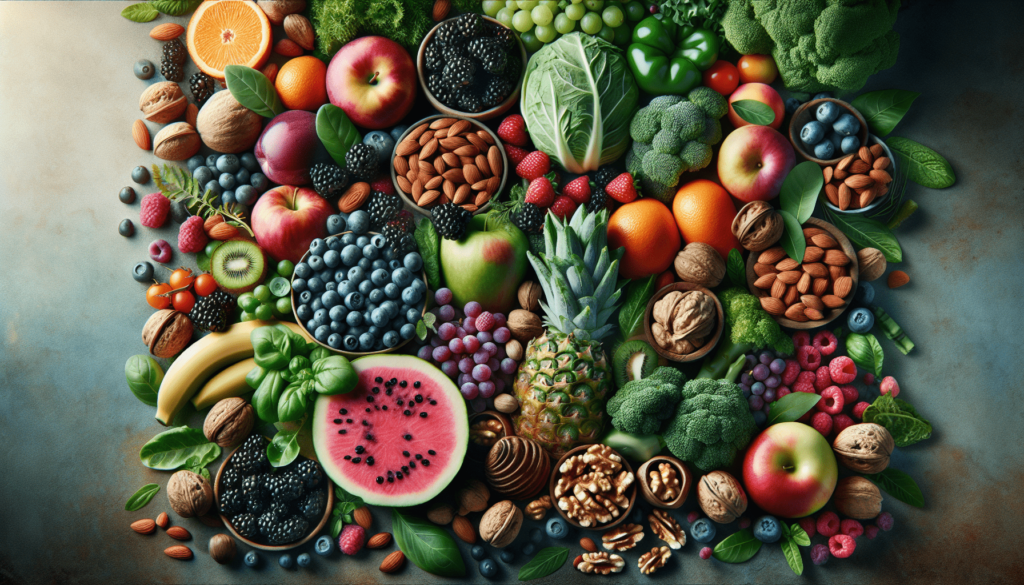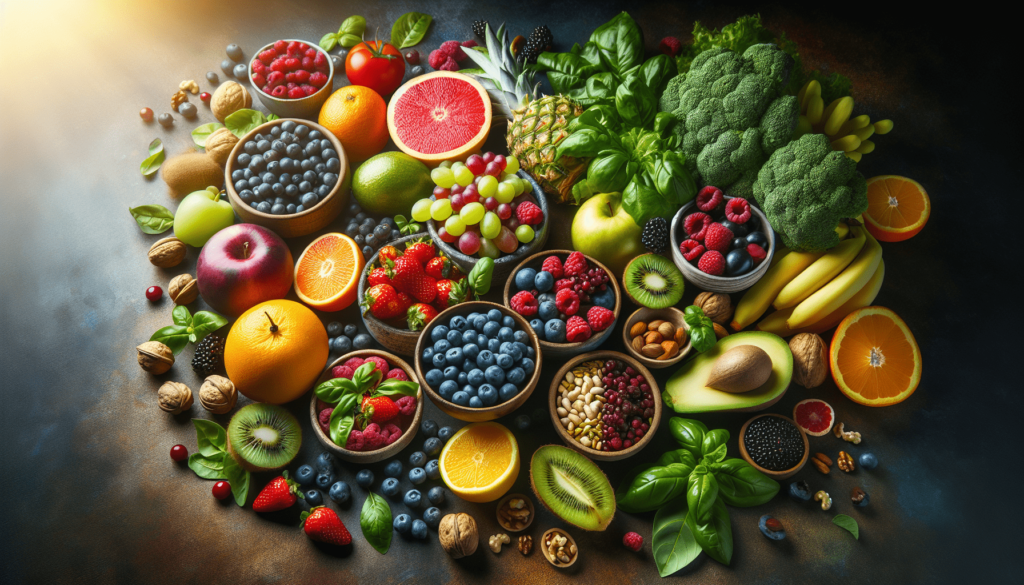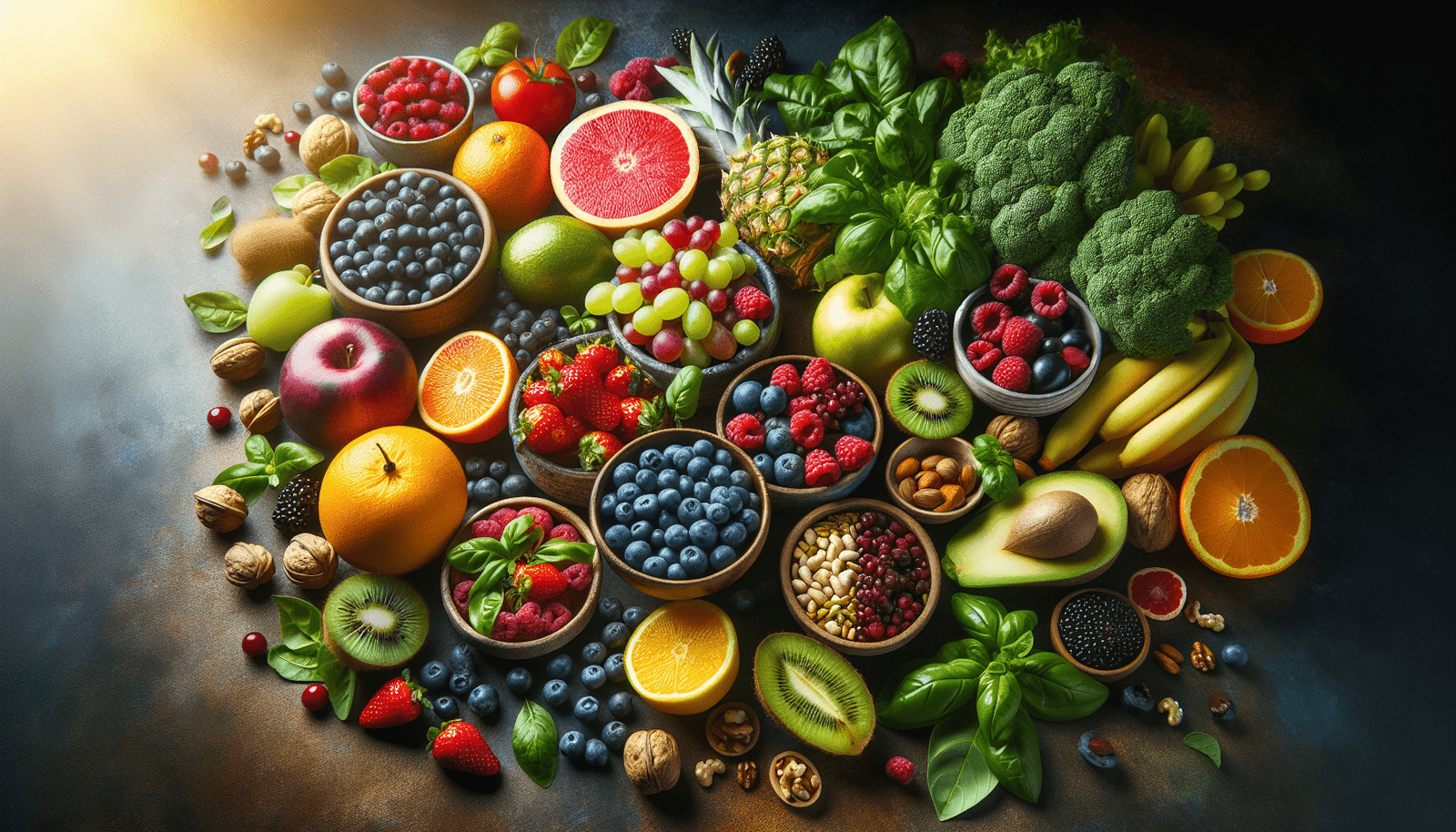How can you improve your health and lifespan through your diet?
Have you ever wondered how changing your eating habits could impact your health and lifespan? By focusing on incorporating specific nutritional strategies into your diet, you can promote longevity and overall well-being. Let’s explore some effective ways to optimize your nutrition for a healthier and longer life.

The importance of a balanced diet for longevity
Ensuring that your body receives a balanced diet is essential for promoting longevity. A balanced diet includes a variety of nutrients your body needs to function properly, such as carbohydrates, proteins, fats, vitamins, and minerals. By consuming a diverse range of foods, you provide your body with the essential building blocks it needs to thrive.
Including a variety of fruits and vegetables in your diet
Fruits and vegetables are rich in vitamins, minerals, and antioxidants that can help protect your body from diseases and support overall health. Aim to consume a colorful array of fruits and vegetables each day to ensure you are receiving a wide range of nutrients. From leafy greens to berries, each fruit and vegetable offers unique health benefits that can contribute to longevity.
The impact of hydration on longevity
Staying properly hydrated is crucial for maintaining optimal health and supporting longevity. Water helps your body function properly by aiding in digestion, regulating body temperature, and transporting nutrients. By staying hydrated, you can improve your overall health and well-being.
Tips for staying hydrated throughout the day
- Carry a reusable water bottle with you to remind yourself to drink water regularly.
- Flavor your water with fruits or herbs for added taste and hydration.
- Monitor your urine color to ensure you are adequately hydrated – pale yellow urine is a good indication of hydration.
The role of protein in longevity
Protein is an essential macronutrient that plays a crucial role in promoting longevity. It is important for muscle growth and repair, immune function, and hormone production. Including an adequate amount of protein in your diet can support overall health and help you live a longer, healthier life.
Sources of protein for longevity
- Lean meats such as chicken, turkey, and fish.
- Plant-based sources of protein like beans, lentils, and quinoa.
- Dairy products such as yogurt, cheese, and milk.
The benefits of healthy fats for longevity
Healthy fats are an important component of a balanced diet and can have a positive impact on your health and longevity. Omega-3 fatty acids, in particular, are known for their anti-inflammatory properties and heart-healthy benefits. Including sources of healthy fats in your diet can help reduce the risk of chronic diseases and support longevity.
Examples of healthy fats for longevity
- Fatty fish like salmon, mackerel, and sardines.
- Nuts and seeds such as almonds, walnuts, and chia seeds.
- Avocado, olive oil, and coconut oil for cooking and dressing.

The role of carbohydrates in a longevity-focused diet
Carbohydrates are the body’s primary source of energy and are essential for maintaining optimal health and longevity. While it’s important to choose the right types of carbohydrates, such as whole grains, fruits, and vegetables, to support overall health. By incorporating complex carbohydrates into your diet, you can provide your body with sustained energy and essential nutrients.
Examples of complex carbohydrates for longevity
- Whole grains like brown rice, quinoa, and oats.
- Fruits such as apples, bananas, and berries.
- Vegetables like sweet potatoes, broccoli, and spinach.
The impact of micronutrients on longevity
Micronutrients are essential vitamins and minerals that play a crucial role in various bodily functions and overall health. By ensuring you consume an adequate amount of essential micronutrients, you can support longevity and reduce the risk of nutrient deficiencies.
Key micronutrients for longevity
| Micronutrient | Sources |
|---|---|
| Vitamin C | Citrus fruits, bell peppers |
| Vitamin D | Fatty fish, fortified milk |
| Calcium | Dairy products, leafy greens |
| Magnesium | Nuts, seeds, whole grains |
| Iron | Meat, poultry, legumes |
The importance of antioxidants for promoting longevity
Antioxidants are compounds that help protect your cells from damage caused by free radicals, which are harmful molecules that can contribute to aging and disease. By including antioxidant-rich foods in your diet, you can support longevity and overall health.
Foods rich in antioxidants for longevity
- Berries like blueberries, strawberries, and raspberries.
- Dark chocolate and cocoa.
- Spinach, kale, and other leafy greens.
- Nuts and seeds like almonds, walnuts, and flaxseeds.
The impact of phytonutrients on longevity
Phytonutrients are plant compounds that have protective properties and can help support longevity. These compounds are found in a variety of fruits, vegetables, nuts, and seeds and can contribute to overall health and well-being.
Examples of phytonutrients for longevity
- Lycopene in tomatoes.
- Flavonoids in citrus fruits and berries.
- Resveratrol in grapes and red wine.
- Sulforaphane in broccoli and cauliflower.
The role of probiotics and prebiotics in promoting longevity
Probiotics are beneficial bacteria that help support gut health and overall well-being, while prebiotics are non-digestible fibers that promote the growth of healthy bacteria in the gut. By including probiotic and prebiotic-rich foods in your diet, you can support a healthy gut microbiome, which is essential for longevity.
Sources of probiotics and prebiotics for longevity
- Yogurt, kefir, and other fermented foods.
- Bananas, garlic, and onions.
- Jerusalem artichokes, asparagus, and leeks.
The impact of intermittent fasting on longevity
Intermittent fasting is a dietary approach that involves cycling between periods of eating and fasting. This eating pattern has been shown to have various health benefits, including supporting longevity and reducing the risk of chronic diseases.
Types of intermittent fasting for longevity
- 16/8 method: Fast for 16 hours and eat within an 8-hour window each day.
- 5:2 diet: Eat normally for 5 days and restrict calories to 500-600 on 2 non-consecutive days.
- Alternate-day fasting: Fast every other day and eat normally on non-fasting days.
The benefits of calorie restriction for longevity
Calorie restriction is a dietary approach that involves reducing calorie intake without compromising essential nutrients. This approach has been shown to extend lifespan and reduce the risk of age-related diseases in various animal studies. By practicing calorie restriction in a safe and controlled manner, you can potentially promote longevity and overall health.
Tips for practicing calorie restriction for longevity
- Focus on nutrient-dense foods to ensure you are meeting your nutritional needs.
- Gradually reduce your calorie intake to avoid drastic changes that could impact your health.
- Monitor your progress and listen to your body’s hunger cues to ensure you are meeting your energy needs.
The impact of mindful eating on longevity
Practicing mindful eating involves paying attention to your food choices, eating habits, and hunger cues to promote a healthy relationship with food and support longevity. By being more mindful of your eating habits, you can make better choices, savor your meals, and improve your overall well-being.
Tips for practicing mindful eating for longevity
- Eat without distractions, such as watching TV or using your phone.
- Chew your food slowly and savor each bite.
- Listen to your body’s hunger and fullness cues to guide your eating habits.
Conclusion
By incorporating specific nutritional strategies into your diet, you can promote longevity, support optimal health, and improve your overall well-being. From focusing on a balanced diet to including essential nutrients like protein, healthy fats, and antioxidants, there are various ways you can optimize your nutrition for a longer, healthier life. By making small but impactful changes to your eating habits, you can set yourself up for a lifetime of well-being and vitality.

